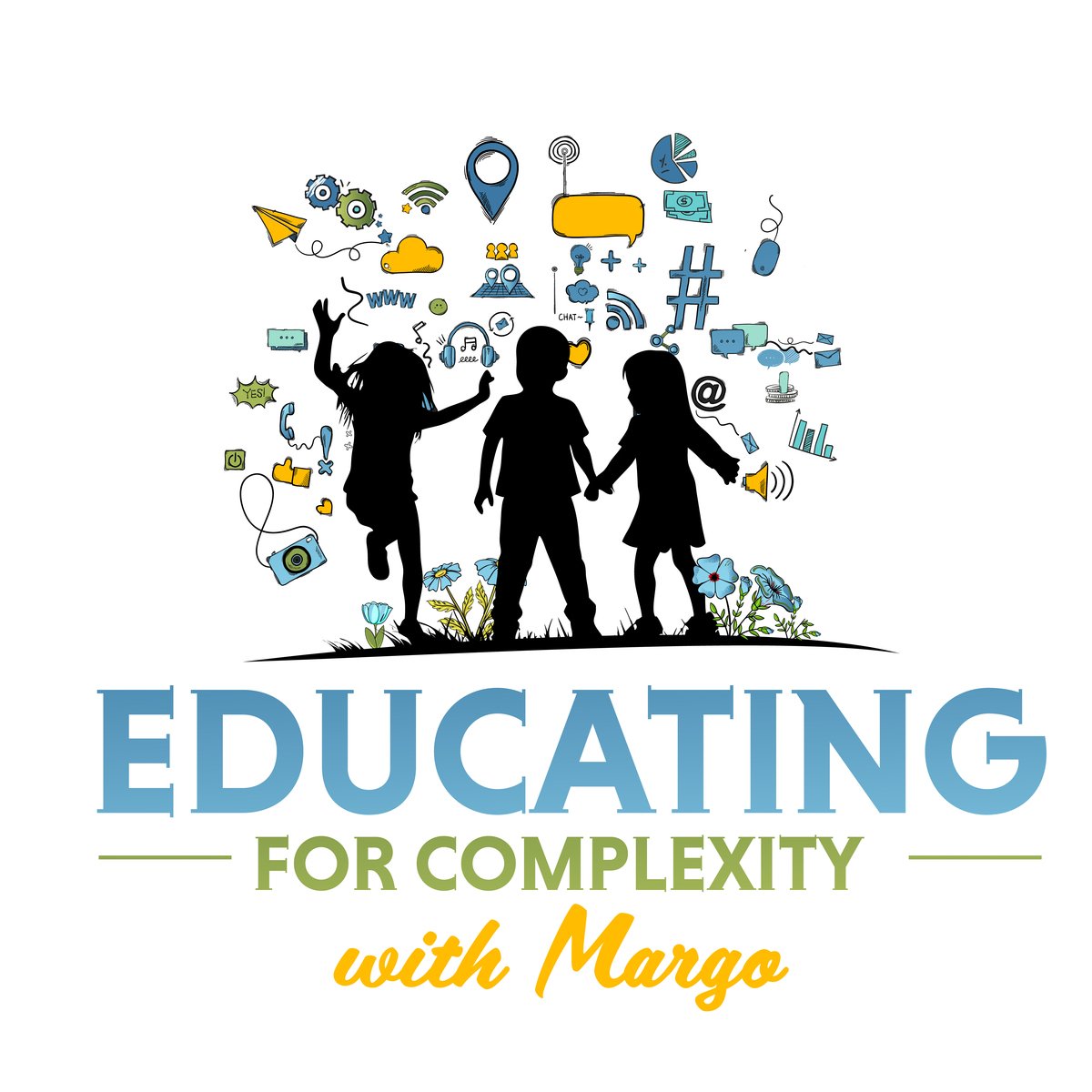Hello friends,
Spring is fully present and I have been hiking around Luxembourg. I hope you are taking the time to discover the outdoors away from the office, away from the news, and social media dramatic theatre in 10 second bytes… Connect with family and friends in a spontaneous walk or hike, your well being will thank you…
In this issue, we have the following:
A Big Idea: The Silent Crisis in Student Engagement (And What Parents Can Do)
Ideas with Consequences- 3 amazing curations featuring a podcast and a look at practices for parents to learn from in Singapore and Latin America
Intellectual Integrity Spotlight - The EAST Framework strategy…easy to remember and do daily
Let’s dive into the Big Idea first….this one has been on my mind for the last 2 months…
Your home for politically-neutral, Christ-first news
Tired of feeling like you have to pick a side just to stay informed? The Pour Over makes it easy to engage with the news––without the bias, outrage, or anxiety.
Every Monday, Wednesday, and Friday, they deliver quick, entertaining news summaries paired with short biblical reminders to keep you rooted in Christ, not the chaos. Instead of fueling division, the news becomes a tool to strengthen your faith and spark loving action in response.
Over 1 million readers have already found a better way to stay informed: Christ-first, anger-free, and even kinda funny.
Try it for free and check out their welcome email that’ll make you glad you did!
A BIG IDEA
The Silent Crisis in Student Engagement
(And What Parents Can Do)
There’s no shortage of headlines about kids feeling anxious, bored, or simply done with school. Meanwhile, the dopamine drip of social media has captured the hearts, minds, and fingertips of our children. YouTube has replaced Hollywood. Instagram and X (née Twitter) have become the town squares of “all the news fit to post”—and all of it’s free, thanks to the ever-generous tech overlords. Bless their algorithms.
But while we talk endlessly about screen time and digital distractions, there’s a quieter voice missing from the conversation—our kids’ own perspectives on learning. How do they feel about school? About education? About their futures?
As someone who writes for parents trying to future-proof their children’s education, I found The Disengagement Gap: Why Student Engagement Isn’t What Parents Expect to be a treasure trove of insight—and, frankly, a wake-up call. It answered the quiet questions so many of us have about what’s really going on at school.
Here’s what I took away from the report—along with what you, as a parent, can actually do about it. Let’s start with the hard hitting data.
📊 The Big Ideas (With Hard-Hitting Data)
1. There’s a Huge Gap Between What Parents Think and What Kids Experience
We think our kids are thriving more than they actually are.
65% of parents of 10th graders think their child loves school.
Only 26% of those kids agree.
78% of parents believe their child is learning a lot.
Just 60% of students say that’s true.
That’s not just a gap—it’s a canyon.
Curious to see how deep it goes and what you as a parent can do?
IDEAS WITH CONSEQUENCES
#1 Educating Kids in the Age of AI
This week, I found myself returning several times to an episode of The Ezra Klein Show titled “Educating Kids in the Age of AI.” In it, Ezra explores a question that many schools are quietly grappling with—one that feels almost too big to say aloud: What is the purpose of education now?
For years, the unspoken assumption has been that the primary goal of education is to “get a good job.” But this framework is beginning to fray. The economic landscape is shifting rapidly, flooded with powerful AI tools capable of mimicking—and in some cases outperforming—human skills. So what happens to that traditional purpose when machines can do so much of what we were training students to do?
This episode is a must-listen. Ezra’s conversation with Rebecca Winthrop, author of The Disengaged Teen, delves into what a more human-centered, future-ready education might look like. It's a thoughtful, provocative dialogue that asks not just how we teach in the age of AI—but why we teach at all.
Klein, Ezra. “Educating Kids in the Age of AI.” The Ezra Klein Show, interview with Rebecca Winthrop, 14 May 2024, https://www.youtube.com/watch?v=HQQtaWgIQmE. Accessed 16 May 2025.
#2 Why Is Singapore Winning at Parenting Policy?
Imagine a country where new parents get months of paid leave and cash bonuses, where every child has a savings account for health and education, and where preschool isn’t just accessible—it’s affordable and high-quality. That’s Singapore. With programs like KidSTART offering home visits and developmental screenings from pregnancy through age three, and national efforts to train teachers in special needs education, it’s clear: Singapore treats parenting as a public priority. What if we did the same? Their model raises a compelling question—what could our families gain if we reimagined support from the ground up?
National Center on Education and the Economy. Singapore. NCEE, https://ncee.org/singapore/#learning-system. Accessed 18 May 2025.
#3 What if School Looked Different?
In Latin America, simple ideas are redefining learning. Swarmob uses project-based collaboration to connect students across schools, while Sapieduca gamifies lessons to boost engagement—no fancy tech required. Meanwhile, NVELE and Habilidades para el Futuro are reimagining education for youth who’ve dropped out, offering second chances and practical skills for the digital world. These innovations remind us: learning doesn’t have to follow one path or require elite tools. What matters is relevance, flexibility, and joy. What could our own schools do differently to keep every child—and especially the overlooked—connected, motivated, and seen?
“Seven Innovations Seeking to Transform Education in Latin America.” HundrED, 11 Apr. 2024, https://hundred.org/en/articles/seven-innovations-seeking-to-transform-education-in-latin-america. Accessed 17 May 2025.
INTELLECTUAL INTEGRITY SPOTLIGHT
Let’s face it—coaching kids in positive behavior and self-regulation can sometimes feel like launching a mission to Mars… without a manual, fuel, or even a rocket. But with consistent strategies, kids begin to develop patterns of thinking and responding that shape their everyday habits and “ways of being.”
The EAST framework is a powerful and practical tool to help make that happen. It gives you simple ways to frame (or reframe) tasks that kids may find hard to start—making it easier for them to accomplish goals or build healthy new habits.
EAST stands for Easy, Attractive, Social, and Timely—four behavioral science principles that can help you guide your child’s actions in a way that feels natural, not forced. It’s an approachable framework that helps you coach your child toward greater self-regulation without the power struggles… or sounding like a drill sergeant.
In other words, EAST makes parenting a little more “coachy”—in the best way possible (if that’s a word)
Here how it works…
How did this newsletter land with you today?
Thanks for sharing your thoughts in the survey. I would love to hear what you are thinking about these ideas.
Drop me a line at this email: [email protected] (Your thoughts, ahas and feelings about the changes around us matters. Take a moment to share please…
As always I appreciate you showing up to share the ideas with consequences and the big idea this week about how we need to rethink and challenge the schools in our community to give student voice an elevated place in how learning is reimagined in these changing times.
Until next week….be courageous and steadfast in being the parent coach for your kid with intention… And if you have time, try the EAST strategy with your kid and share with me how it goes.
With love from Luxembourg,




